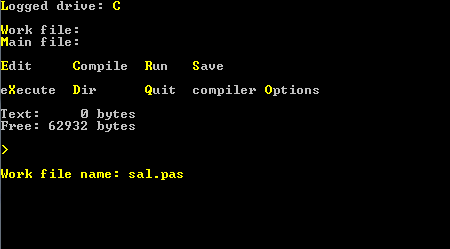
Twenty-five years ago (on 20 November 1983 to be precise), something I consider very important happened: Borland released Turbo Pascal 1.0.
Turbo Pascal 1.0 was a small software application (only 68 kilobytes) that ran on MS-DOS and CP/M and which featured an IDE to develop console applications using the Pascal programming language.
I believe Turbo Pascal 1.0 was an important milestone because it allowed countless people of my age to learn structured programming using a programming language created by someone who was an expert in creating programming languages but also teaching and pedagogy, Niklaus Wirth. I believe that many students (and I am not alone) have difficulties learning programming today because of our focus on C-like languages like C++ and Java which are excellent tools for professionals but oh so lousy for teaching the Art of Programming.
I wrote a blog entry in 2007 to explain how I became a programmer. I wrote about my affection for Turbo-Pascal and GW-BASIC. [Incidentally, I believe a modern equivalent would be DrScheme which I like a lot and which I used last year to teach (sound) programming techniques to second year university students.]
Here is a small Hello World programme written in Pascal:
Program HelloWorld(output);
Begin
   Writeln('Hello, World!')
End.
A big thank you to all those who made Turbo-Pascal 1.0 possible.



